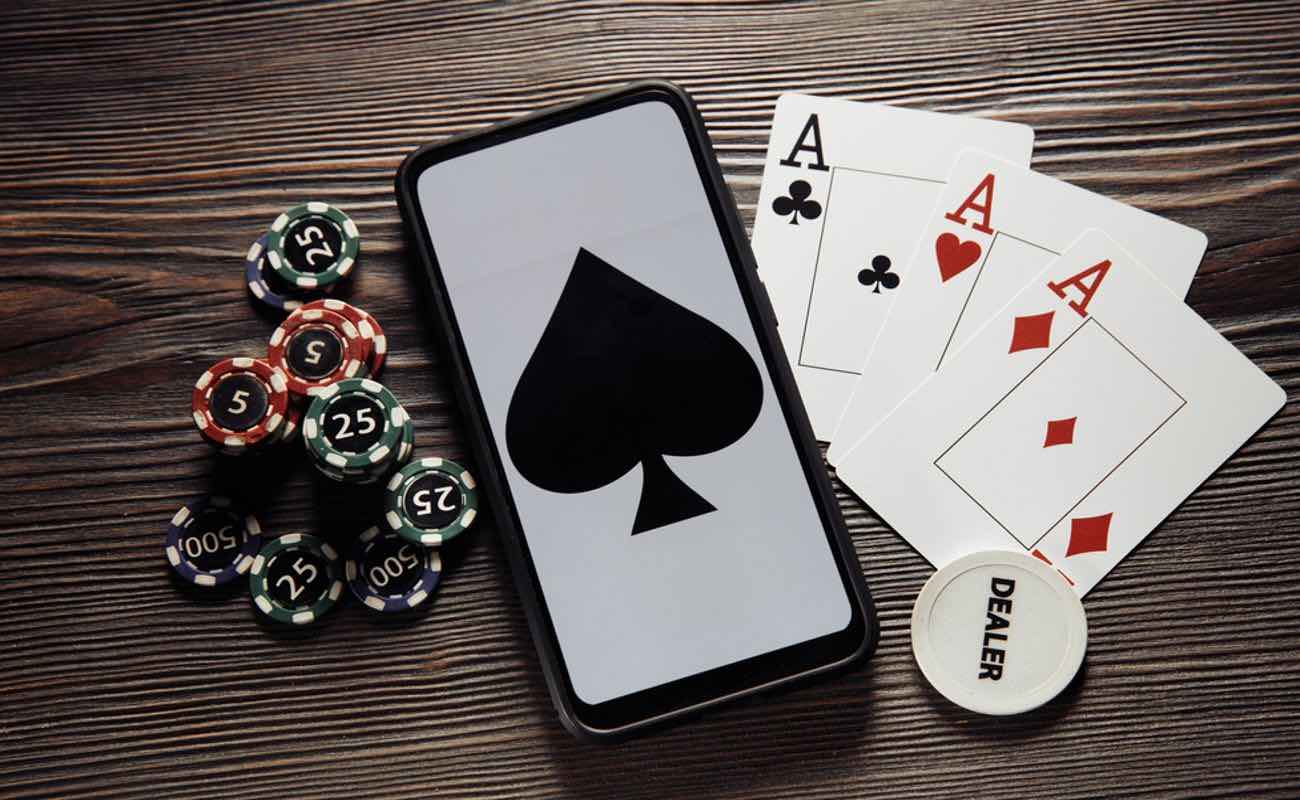
Poker is a game of careful analysis and study. While you may have read numerous poker books or subscribed to all the poker channels, could you be missing out on a simple yet crucial poker tool? Your own notebook could be one of the best resources for upping your poker game and taking your strategy to the next level.
The phrase “knowledge is power,” is very well-suited to poker. Effectively reading your opponents and getting to know their particular playing personalities gives you valuable insights into their tendencies and how they’re likely to react to your decisions. This information is crucial in helping you make the most profitable decision possible at the poker table. With the right information, and the knowledge to interpret and utilize it effectively, you’re bound to increase your win rate and improve your poker skills. One of the simplest ways to collect this information, and use it to your advantage, is by taking notes in your poker games. Let’s show you how to start taking notes like a pro when you play online poker.
Why Should You Take Notes in a Poker Game?
Different players approach poker games differently. If you keep track of your opponents and take notes on their plays, you’ll know which strategy to use to play optimally and improve your chances of winning.
If you build a habit of taking notes during games, your notes will provide helpful information about different types of players and how they’re likely to react to certain circumstances in the game. It can even give you key insights into the weak points of your own strategy so that you can get better at poker. When you recognize behavior patterns, you’ll know when it’s best to test out an unorthodox poker strategy and surprise your rivals.
Your poker notebook is like your playbook. You’re no longer going into a game blind; now, you have insights from previous games and rounds. Many players don’t build the habit of taking notes, so the simple act of taking poker notes can give you the upper hand.
<h2>What Notes Should You Take in a Poker Game?</h2>
A rookie note-taking mistake is to note anything and everything that happens. This might seem like a safe bet, but it distracts you from the game and leaves you with a lot of useless information. Land-based and online poker tournaments and games are fast-paced, requiring a lot of focus, so it’s important to understand what events warrant being noted. You want to strike a good balance between the attention you put into taking notes and actually playing the game. You want your notes to be useful, but you also don’t want to miss any crucial moments and make mistakes that could have been avoided. Only note the most useful information to make the most of your limited note-taking time.
The most important things to note in a poker game are unusual events or moves. An example of this could be a player making a big over-bet on the river with a bluff. Don’t record standard or expected plays, but take note of the events that stand out or surprise you.
Also, take note of any patterns or tendencies you notice from particular opponents. If you regularly play against the same people, these notes could help you spot a bluff or understand their aggression level and playing style. Poker game notes don’t have to be descriptive and lengthy, they just need to be insightful and easy to read. Notes that are informative but to the point will also be easier to recall in future games.
Tips for Taking Useful Poker Notes
Just like you need poker tips and tricks for when you play, you need tips to write valuable notes. Let’s look at a few key things to keep in mind when you take notes during games.

Use Abbreviations
You won’t have ample time to write or read your notes while you play. Make your notes easier to write and read by using abbreviations. You can use abbreviations like BTN, meaning for the button, or CRAI, for check-raise all-in. Another example is the commonly used UTG for under the gun. Only use the abbreviations you know well if you’re a new player.
Write Player Positions and Postflop Actions
There’s no point in writing that a player three-bet with a strong hand if you don’t know where they raised from or the position of their initial raise. This note could have a completely different meaning depending on the position the player was in.
Mention what happened after the flop or if a player made a large continuation bet. If you’re trying to take notes on a player’s approach or strategy, you’ll need to know more details about the notable moves they make.
Know When NOT to Take Notes
One time you should stop taking notes is during a tilt. In poker, a tilt is an emotional reaction to something that happens in a game that affects your gameplay. Losing badly can lead players to go on tilt.
Your mindset is crucial for success in poker. Tilting happens to every player, but don’t let it affect your notes. Emotions often make us exaggerate and we might end up describing players in a way that’s not completely true. Don’t take notes based on your frustration or anger. Try to focus on the exact events and facts to be as accurate as possible and make sure your poker notes are as useful as possible.
Keep Your Notes Organized
Your notes should always be organized so you can refer to them anytime. Make sure you have separate sections for the preflop, flop, turn, river, and any noticeable tendencies. You can also separate your players by their skill level, if they’re passive or aggressive, or by how regularly they play.
Make Note-Taking a Habit
Taking notes from games will help you build the best poker strategy. It might seem like unnecessary work, but it can help you stay focussed on the events and facts instead of solely depending on your hunch or going full tilt.
Don’t rely on your memory. Create a habit by setting aside a poker notebook or app to use every time. Make it a habit always to check your notebook or app before you begin a game. Keep your notes organized by date, player, and position to make it easy to reference later in the game or when you’re preparing for your next one.
How to Take Notes in Live Poker Games

Thanks to smartphones and modern technology, you don’t need to use notebooks during live games. Live games are slower, giving you more time to take in-depth but useful notes. You can use the normal notes app that comes with your phone or you can download a poker note-taking app that’s been designed for this task. An app will remind you what to note and which abbreviations to use. Your notes will remain private and fellow players won’t know about them.
Unfortunately, you won’t be able to read these notes in the middle of the hand in a live game. Instead, your notes will help you prepare for your next game. In live games and tournaments, you’ll probably face the same players multiple times. Having a track record of how everyone plays is invaluable for both your day-to-day and poker tournament strategy.
Many online poker rooms have incorporated built-in features to their websites that make it easier for players to take notes on their opponents in real-time. For most, it’s as simple as clicking on a player’s name or avatar and typing your note in the box that pops up. In some cases, you may also be able to mark players using small icons or color labels. This can be extremely useful in the early stages of your poker games because if you have marked regular players in your games, for example, with a specific color or shortcut (and you have your notes on them handy), you’ll know exactly how you should approach the game before it even starts. This can be extremely valuable when you’re selecting a table.
In addition to tracking regular players that you come across often, here are a few other categories you can sort your opponents into while you’re taking notes:
- Skilled Regulars (Good Regs): Strong opponents that are worth exercising caution against or adapting a careful playing approach for.
- Less Skilled Regulars (Bad Regs): Players who play often, but exhibit subpar strategies or make frequent mistakes.
- Patient Callers: Take note of passive players with a tendency to call with a wide range of hands.
- Overly Aggressive Players: Take note of players who display an overly aggressive playing style, like frequently employing three-bets.
What To Take Note of in Live Games
A lot can and does happen in poker games, so it’s important to distinguish what situations are significant enough to warrant you taking note of them. As in regular games, you should note any peculiar hands or moves and describe the position and bet sizes in detail. Another thing to note is any reads or poker tells you notice along the way. If a player talks more when they bluff, write that down. This information will help you pick up player behavior patterns and discover any poker tricks they like. Smart players won’t use all their tricks in one round, but a note-taking system will help you connect the dots and build a profile for them.
Level Up With a Live Poker Tournament at Borgata Online
It’s time you put all these poker tips to the test in a live game. Borgata Online is the perfect place to launch your poker passion. This mobile-friendly platform has a poker table for every budget and playing style, plus exciting poker promotions and bonuses. Register with Borgata Online for an unbeatable online poker experience.
